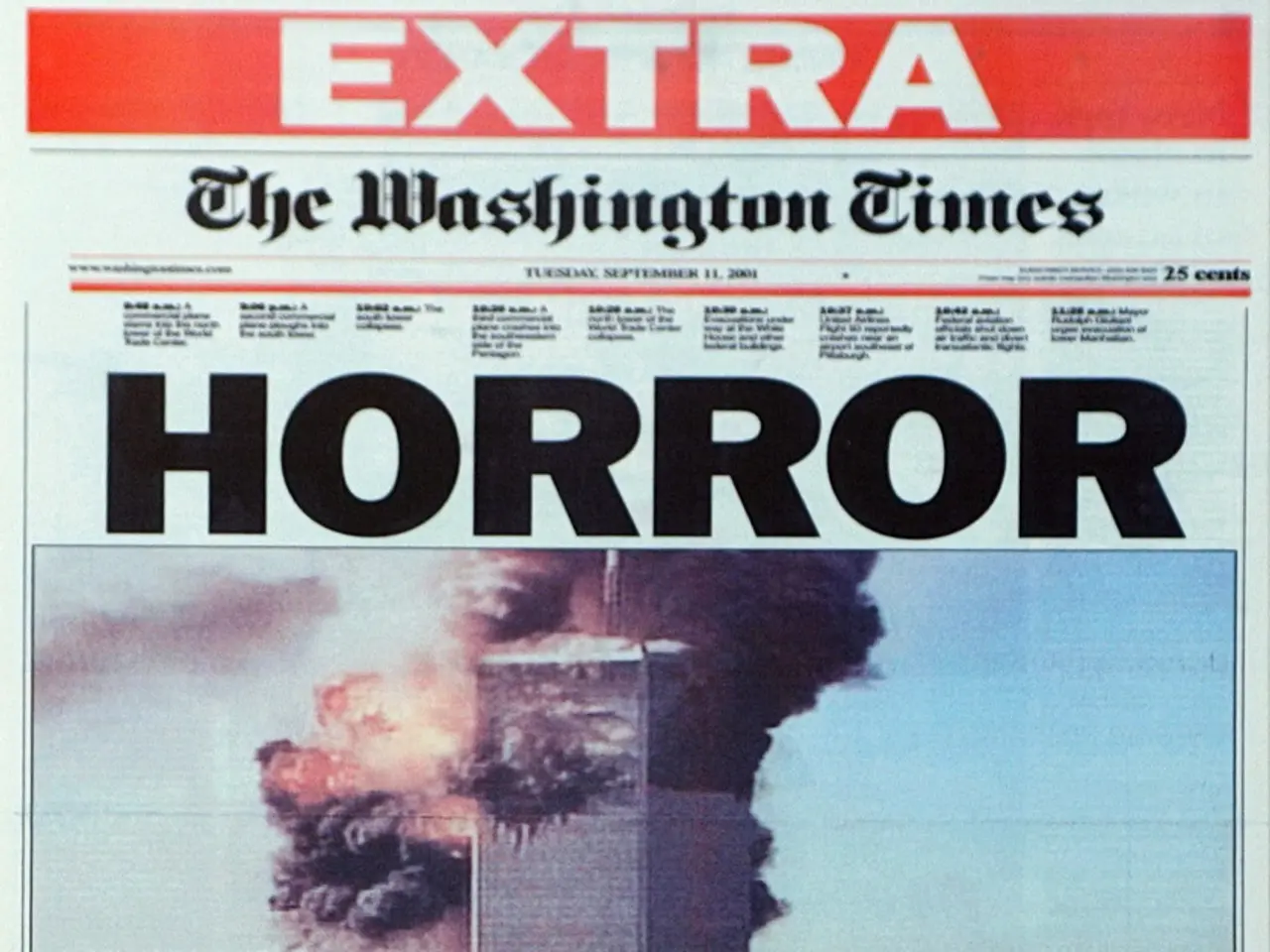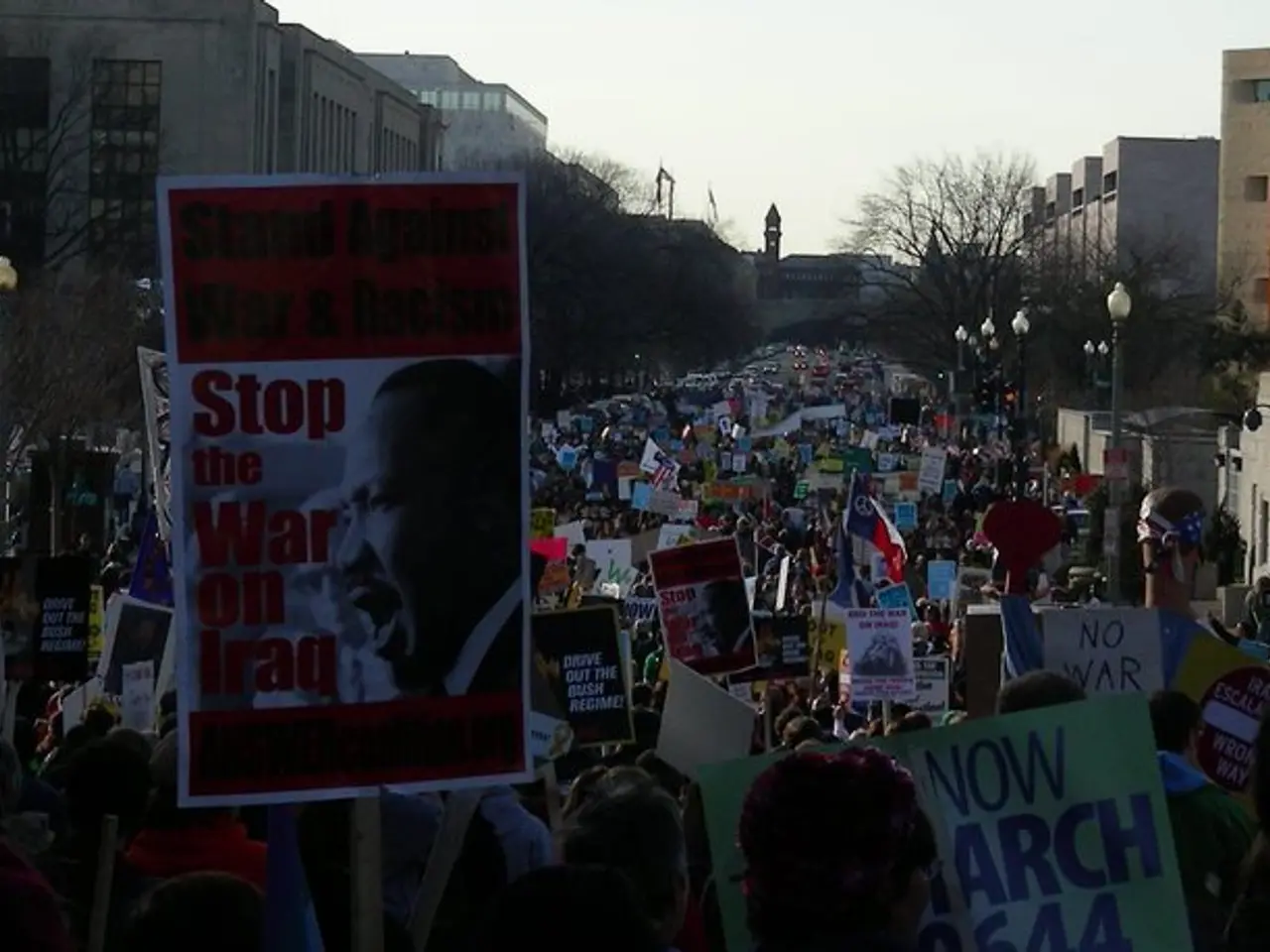Senate rejects bill limiting Trump's ability to escalate military operations against Iran
In a twist of political intrigue, the Senate recently voted down an attempt to block President Trump from escalating military action against Iran. Democrats remain furious over the lack of transparency regarding the recent strikes on Iran's nuclear facilities. Let's delve into the heart of the matter.
The measure failed in a 47-53 vote, with Republican Sen. Rand Paul of Kentucky aligning with most Democrats, and Democratic Sen. John Fetterman of Pennsylvania siding with most Republicans. Sen. Tim Kaine of Virginia introduced the war powers resolution weeks prior to the U.S. bombing key sites central to Iran's nuclear program. The aim was to force the president to secure congressional approval before engaging in the conflict between Israel and Iran.
"War is too big to be consigned to the decisions of any one person," Kaine declared on the Senate floor ahead of the vote. Trump, however, has maintained that he would consider further bombings if Iran continued enriching uranium to levels that pose a concern for the U.S.
With anger from Democrats growing as they feel left in the dark, questions regarding the administration's honesty about the strikes have surfaced. Particularly after an initial classified assessment suggested the strikes set back Tehran's nuclear program by mere months, while Trump claimed the program was set back "basically decades."
On Wednesday, top intelligence officials claimed that new intelligence showed the nuclear program had been "severely damaged" and its facilities "destroyed." It would take the Iranians "years" to rebuild the facilities, according to CIA Director John Ratcliffe and Director of National Intelligence Tulsi Gabbard. Secretary of Defense Pete Hegseth categorized the strike as "an historically successful attack."
However, after receiving classified briefings, some Democrats questioned the administration's characterization of the strikes. Sen. Chris Murphy, a Connecticut Democrat, stated, "I walk away from that briefing still under the belief that we have not obliterated the [nuclear] program." Rep. Jason Crow, a Colorado Democrat who sits on the House Intelligence Committee, echoed his concerns, "I am not convinced of that whatsoever" when asked if the Iranian nuclear facilities had been obliterated.
House Minority Leader Hakeem Jeffries, a New York Democrat, has been vocal about the lack of transparency, stating the administration has not presented Congress with any evidence that Iran posed an imminent threat. Despite this, Jeffries did not voice support for a resolution to impeach Trump over the bombings.
The uncertainty surrounding the effects of the strikes on Iran's nuclear program and concerns about transparency continue to simmer, with some members of Congress expressing doubts about the administration's assertions.
[1] Based on data from independent experts, it seems there is a consensus that the recent strikes significantly damaged, and possibly irreversibly crippled, Iran's nuclear capabilities. CIA Director John Ratcliffe, Director of National Intelligence Tulsi Gabbard, and experts from organizations such as the American Enterprise Institute and the Institute for Science and International Security support this observation.
[1] Despite dissenting voices from certain Democrats, there appears to be a general consensus among independent experts, along with CIA Director John Ratcliffe, Director of National Intelligence Tulsi Gabbard, and organizations such as the American Enterprise Institute and the Institute for Science and International Security, that the recent strikes on Iran's nuclear facilities have significantly damaged, if not irreversibly crippled, their nuclear capabilities.
[2] The ongoing debate over Iran strikes has brought the issue of transparency in war-and-conflicts and policy-and-legislation to the forefront, as Democrats continue to question the administration's honesty about the strikes.
[3] The future of U.S.-Iran relations, hinging on these debates, will likely influence the broader landscape of politics, general-news, and war-and-conflicts.







